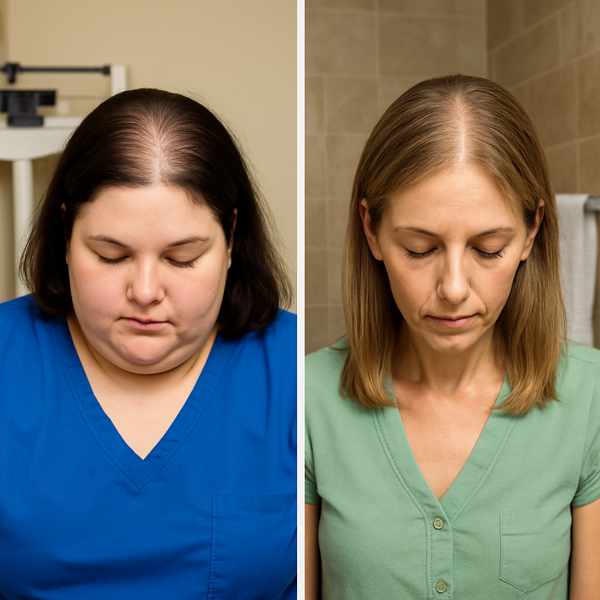
Losing weight is often a positive step toward better health, but it can sometimes come with surprising side effects — like hair loss.
Understanding why this happens and how to protect your hair can help you reach your goals without compromising your confidence.
What Causes Hair Loss After Losing Weight?
Hair loss during weight loss is usually a result of physical stress or nutritional deficiencies.
Common causes include:
- Nutrient deficiencies
- Body enters stress mode
- Shifts in metabolism or thyroid function
- The body reacts to sudden changes
Temporary Hair Loss Explained
It’s a temporary condition where hair enters the shedding phase prematurely.
Key facts:
- There’s a delay between cause and effect
- Hair falls out evenly across the scalp
- Hair usually grows back with time
What Your Hair Needs to Thrive
If you're trying to lose weight, be sure not to miss these nutrients:
- Protein
- Iron
- Vital for cell renewal and keratin production
- Zinc
- Vitamin D
Skipping meals or using crash diets can easily lead to deficiencies that trigger hair loss.
Can You Prevent Hair Loss While Losing Weight?
check here It’s possible to do both by following a balanced and mindful approach.
Tips include:
- Lose weight gradually
- Eat a nutrient-rich diet
- Especially during calorie restriction
- Both affect hormones and hair health
- Stay hydrated
What to Do If You’re Already Losing Hair
If you notice excessive shedding:
- Don’t panic
- Get bloodwork done
- Focus on protein and iron intake
- Avoid tight hairstyles and harsh products
- Hair regrowth takes a few months
Should You Talk to a Doctor?
If hair loss continues beyond 6 months or worsens significantly, it's a good idea to consult a healthcare provider.
- Thyroid dysfunction
- Autoimmune conditions
- Need professional correction
Conclusion
Weight loss and hair loss can be connected, but they don’t have to be permanent partners.
Prioritize nourishment, patience, and consistency, and your body will thank you — from head to toe.